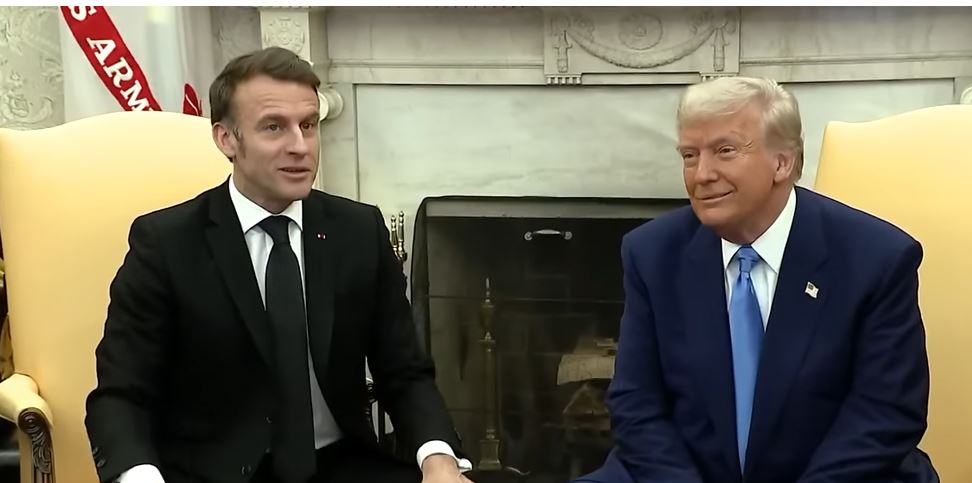
US President Donald Trump and French President Emmanuel Macron put on a display of diplomatic warmth on Monday, but stark differences emerged over their approaches to resolving the war in Ukraine.
As Trump pushed for a swift ceasefire deal with Russia, Macron underscored the need for a structured peace process, revealing deep divisions between the United States and Europe on how to end the conflict.
The meeting, which marked three years since Russia’s 2022 invasion of Ukraine, highlighted the contrasting strategies pursued by Washington and Paris.
While Trump expressed his eagerness to broker an immediate truce, Macron emphasized that any peace agreement must be carefully assessed, verified, and include security guarantees.
Their divergence underscored the broader debate over whether a quick ceasefire would lead to lasting stability or simply serve as a temporary pause before further aggression from Moscow.
Trump avoids calling Putin a dictator
One of the key moments in their discussions came when Trump declined to label Russian President Vladimir Putin a dictator, despite having controversially called Ukrainian President Volodymyr Zelensky a dictator just days earlier.
Macron, in contrast, was unequivocal in condemning Russia’s actions, stating, “President Putin violated the peace.”
His comments reinforced Europe’s firm stance that Russia remains the clear aggressor in the ongoing war.
Trump reiterated his belief that a ceasefire should be reached “as soon as possible” and suggested that he could travel to Moscow to meet with Putin once an agreement is in place.
His remarks fueled speculation about the extent of his willingness to engage with the Russian leader and the potential impact on US-European relations.
Macron insists on a structured peace process
While Trump advocated for a swift resolution, Macron cautioned against rushing into a deal that could leave Ukraine vulnerable.
He stressed that any agreement must be “assessed, checked, and verified” to ensure that it provides real security guarantees rather than merely freezing the conflict.
“We want peace, he wants peace. We want peace swiftly, but we don’t want an agreement that is weak,” Macron told reporters, signaling his concerns that a premature settlement could embolden Russia rather than deter future aggression.
Agreement on European peacekeeping forces
Despite their differences, Trump and Macron found common ground on the potential deployment of European peacekeeping forces once a formal peace deal is reached.
Macron clarified that these forces would not be engaged in active combat but would serve to monitor and uphold the terms of the agreement.
“They would not be along the front lines. They would not be part of any conflict. They would be there to ensure that the peace is respected,” Macron stated.
Trump signaled his support for the proposal, asserting that Putin was also open to the idea.
“Yeah, he will accept that,” Trump said, adding that he had specifically raised the issue with the Russian president.
The meeting between Trump and Macron underscored the ongoing rift in Western diplomacy over how to handle the Ukraine crisis.
While the US president appeared eager to strike a deal and move toward de-escalation, the French leader insisted that any resolution must be rooted in long-term security.
As the war in Ukraine continues to shape global geopolitics, the divide between Washington and Europe remains a crucial factor in determining the next steps toward peace.
The post Trump and Macron clash over Ukraine strategy despite diplomatic overtures appeared first on Invezz
https://invezz.com/news/2025/02/25/trump-and-macron-clash-over-ukraine-strategy-despite-diplomatic-overtures/


